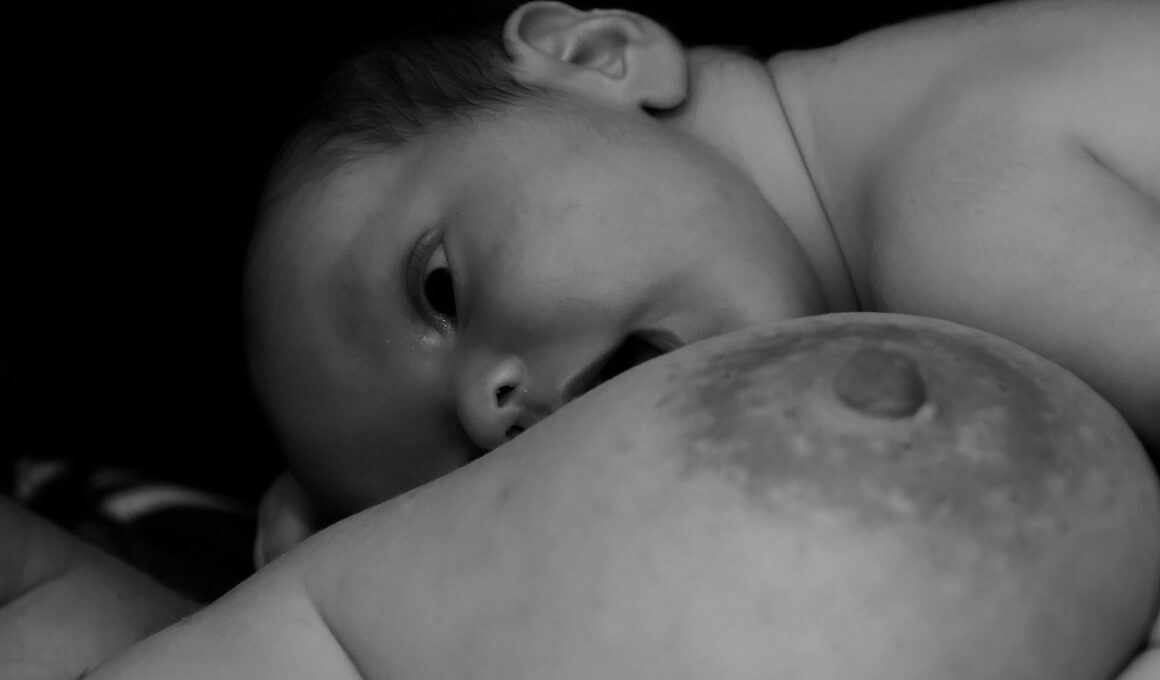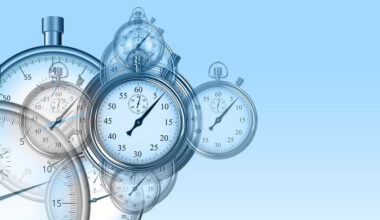How Flexibility Training Supports Postpartum Recovery
After giving birth, many women experience significant physical changes that require special attention. A targeted flexibility training program can be remarkably beneficial in addressing postpartum recovery. Incorporating gentle stretching routines and mobility exercises can help alleviate discomfort in the back, hips, and joints. By focusing on flexibility, new mothers can regain range of motion and reduce the risk of long-term complications. Flexibility training not only improves physical well-being but also contributes to mental health by enhancing mood and reducing stress. Many women find that being active helps them feel more connected to their bodies after the changes of pregnancy. Training can often be done at home, providing convenience during a busy postpartum schedule. Furthermore, flexibility training helps in preparing the body for the physically demanding phase of motherhood. Strong and flexible muscles support proper posture, making daily tasks easier when caring for an infant. As personal fitness goals are often sidelined during pregnancy, incorporating flexibility training can feel empowering, fostering a positive mindset post-baby. This training approach emphasizes self-care, enabling women to prioritize their health alongside their responsibilities.
Flexibility training offers several advantages specifically tailored for postpartum women. One significant benefit is the improved blood circulation achieved through stretching and mobility exercises. Enhanced blood flow can aid in reducing swelling and promote healing of pelvic floor muscles that may have experienced stress during childbirth. Additionally, investing time in flexibility training can encourage deeper breathing and relaxation, both crucial for new mothers managing stress. A renewed focus on body awareness leads to better physical coordination and balance. In this transformative period, mothers often experience an increasing desire to return to pre-pregnancy activities. Flexibility routines can support this journey, making it easier to engage in more strenuous exercises over time. Furthermore, prenatal fitness routines encourage many women to continue participating in their wellness journey, creating a sense of community and support. Establishing a network with other mothers can enhance motivation and lessen feelings of isolation postpartum. Trained professionals can provide personalized guidance, ensuring that workouts address individual capabilities and healing. It is crucial to consult healthcare providers before beginning any new exercise regimen, ensuring optimal safety and effectiveness, tailoring the approach to individual recovery.
Safe Practices for Flexibility Training
Safety during flexibility training is paramount, especially for new mothers. When starting a new exercise plan postpartum, it is essential to listen to one’s body and ensure adequate recovery time after childbirth. Emphasis should be placed on gentle movements and avoiding overstretching to prevent injury. A well-structured routine should include warm-up phases, gradually introducing the body to deeper stretches. Core engagement is vital during these exercises to support stability and prevent lower back pain. Using props such as yoga blocks or straps can also assist in achieving safe and effective stretching positions. Consulting with a qualified fitness professional knowledgeable about postpartum fitness can further enhance the experience. They can guide mothers in modifying exercises to align with their current physical state. Additionally, engaging in group classes focusing on postpartum rehabilitation can foster camaraderie and encouragement among peers facing similar challenges. Support systems are essential in keeping motivation high and providing a network of shared experiences. As flexibility improves, mothers may increasingly feel empowered and capable in their post-baby bodies, igniting their journey towards overall wellness.
The role of education in postpartum flexibility training cannot be underestimated. Women should arm themselves with knowledge about their bodies, recovery, and the benefits of specific exercises. Learning about the pelvic floor’s significance in overall health encourages informed choices about workouts. Resources, including books, online courses, and workshops, can broaden understanding and improve flexibility training practices. Connecting with professionals specializing in postpartum recovery provides tailored advice that considers each woman’s unique birthing experience and recovery timeline. Structured programs focusing on flexibility create an accessible pathway to reintroducing physical activity into daily life. It is essential to recognize that every individual’s journey is unique, and progress may vary. Taking gradual steps can prevent discouragement and foster a sense of achievement. Celebrating small milestones in flexibility can motivate mothers to continue prioritizing their health. Creating a timeline for flexibility improvements can also help monitor progress and strengthen commitment. Postpartum recovery is not merely physical; it encompasses emotional aspects. By engaging in flexibility training, new mothers can focus on self-care and reconnecting with their bodies, ultimately leading to greater overall satisfaction in motherhood.
The Emotional Benefits of Flexibility Training
Beyond physical recovery, flexibility training yields significant emotional and psychological benefits for postpartum women. The transition into motherhood can be overwhelming, causing stress and anxiety in new moms. Incorporating regular stretching sessions allows for mindful moments of self-reflection and relaxation, aiding in mental recovery. The act of dedicating time to one’s fitness can foster a sense of normalcy and control in a period characterized by rapid change. It creates a structure that can help manage overwhelming feelings often associated with new parenting responsibilities. Flexibility training methods, such as yoga, can assist in cultivating mindfulness, improving emotional regulation, and enhancing overall mental well-being. Mindful movement encourages women to slow down, focus on their breath, and embrace the present moment. Eventually, these practices can lead to improved resilience against stressors, creating a healthier maternal mindset. New mothers may also find joy in community support, connecting with others who share similar experiences. Establishing these connections can also improve social well-being, alleviate feelings of isolation, and foster friendships that contribute positively to motherhood.
Maintaining a consistent flexibility training program can significantly enhance postpartum recovery timelines. Many women benefit from incorporating flexibility sessions into their daily routines, ensuring that they remain active and engaged in their health journey. By setting reasonable goals and gradually increasing the intensity and duration of each session, women can build sustainable habits. Returning to pre-pregnancy fitness levels is not an overnight process, and flexibility training is an essential piece of the larger recovery puzzle. This training method can eventually serve as a gateway to more advanced physical workouts. Moreover, positive reinforcement from physical changes can boost confidence levels, allowing mothers to embrace their postpartum bodies with appreciation. Flexible routines can also alleviate common postpartum discomforts, such as tight hips from carrying the baby and tension in shoulders from frequent lifting. As new mothers realize improvements in flexibility, it can cultivate an appreciation for self-care practices, reinforcing healthy habits for the future. Prioritizing flexibility training not only provides immediate relief but also instills a long-lasting mentality toward fitness and health that can benefit women’s physical and emotional well-being for years to come.
Conclusion: Embracing Flexibility for Holistic Postpartum Health
In conclusion, flexibility training plays a crucial role in supporting postpartum recovery for women. The physical advantages, emotional benefits, community connections, and educational opportunities collectively contribute to a transformative recovery experience. By embracing flexibility, new mothers can navigate the post-baby journey with a sense of empowerment, fostering a healthier relationship with their bodies. Focusing on safe and tailored routines ensures optimal recovery while accommodating individual capabilities. The key lies in recognizing the importance of prioritizing both physical and emotional health during this life-changing transition. As new mothers engage in consistent flexibility training, they foster not only self-care but also resilience that will serve them in their parenting roles. Ultimately, incorporating these routines into daily life will support holistic postpartum success, leading to improved overall well-being for both mothers and their families. Understanding that postpartum recovery is multifaceted and ever-evolving will enable women to honor their journeys and experiences. As flexibility becomes integrated into their lifestyles, mothers can embrace the joys and challenges of motherhood, paving the way for a balanced and fulfilled life.
This article emphasizes the unique role of flexibility training in postpartum recovery. It aims to inspire new mothers to incorporate movement into their lives consciously. With so much focus on the baby, it is equally essential to prioritize self-care for an effective recovery. By actively engaging in flexibility routines, women can significantly improve physical health while nurturing emotional well-being. The supportive aspects connected with flexibility training encourage community participation, minimizing feelings of isolation. As new mothers share experiences, this creates a network that promotes understanding and encouragement. Continued exploration into flexibility will offer long-lasting benefits, positively affecting maternal mental health. Research demonstrates that mothers who prioritize physical wellness often experience greater emotional resilience. Discovering pathways to greater flexibility fosters empowerment during the transformational phase of motherhood. Learning about the body and recovery creates a beautiful connection that extends beyond exercise. Ultimately, these practices remind mothers that their health matter too, emphasizing a balanced approach to postpartum living. A holistic understanding of wellness encourages long-term fitness journeys and lays the groundwork for lifelong habits benefiting mothers and their families alike.


